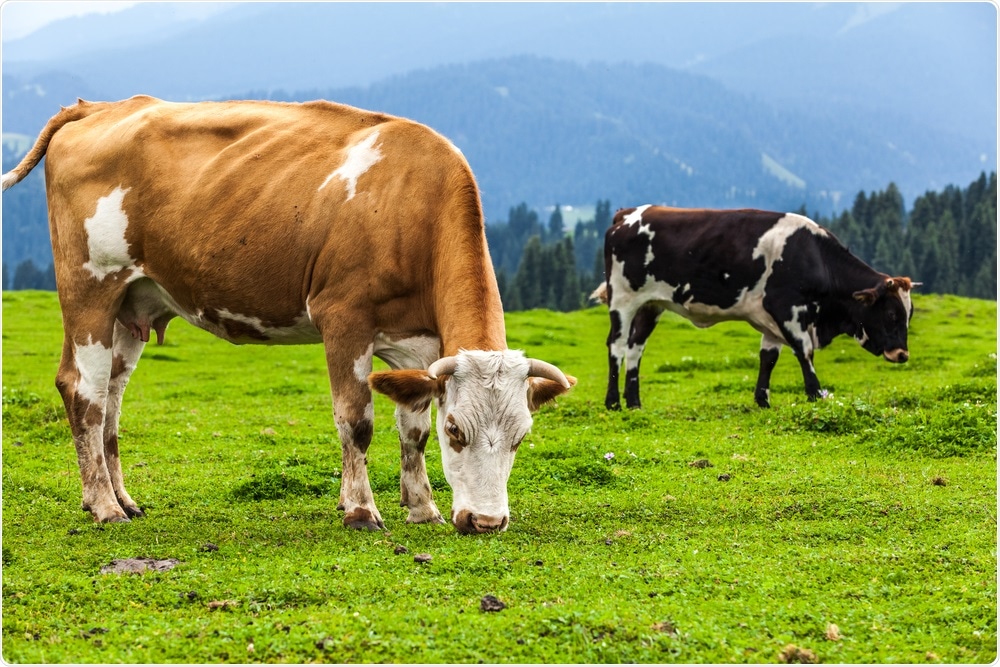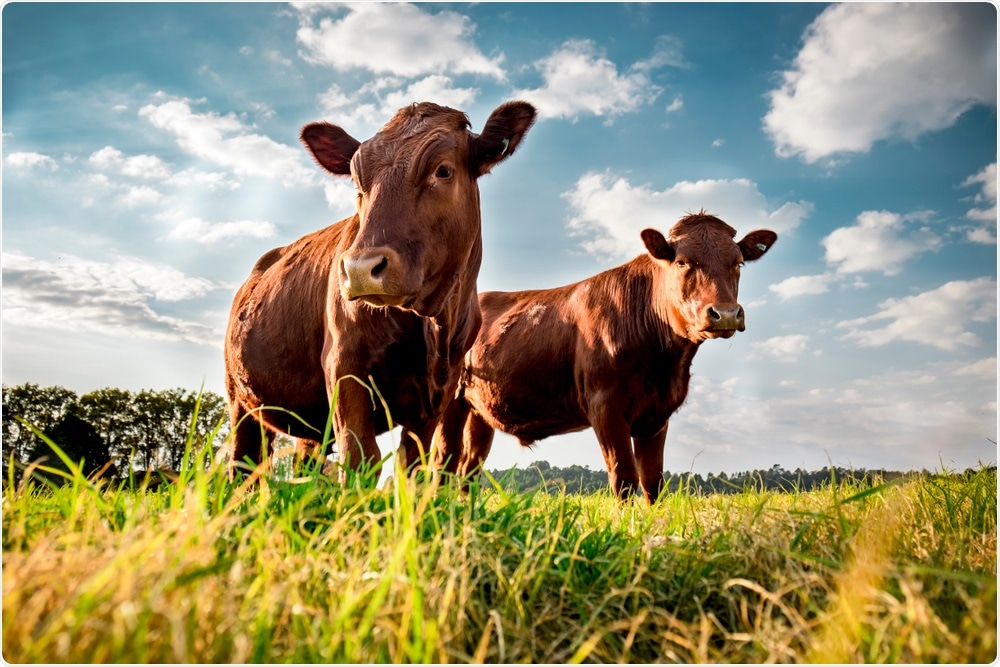In this interview, we spoke to Professor Ermias Kebreab about his latest research into methane emissions and how, by feeding cows seaweed, we could potentially reduce them.
Please could you introduce yourself, tell us about your background within animal science, and what inspired your latest research?
I am Ermias Kebreab, a Professor of Animal Science, UC Davis. Originally from Eritrea with education in the UK and work experience in Canada before joining UC Davis.
I have been working on the methane issue for the last 20 years but it became more ‘fashionable’ in the last 5-10 years due to its contribution to climate change. The latest research was inspired by a publication that showed almost complete elimination of methane when seaweed was added to chopped grass in the lab.
Methane is the second-largest contributor to climate change. How are methane emissions released into the atmosphere and why is it such a powerful greenhouse gas?
Methane is released from cows burping up methane mostly as well as from anaerobically stored manure such as in a lagoon in dairy farms. Methane is 30 to 80 times more effective in trapping heat from the atmosphere compared to CO2, therefore, it makes it much more potent as a greenhouse gas.
However, methane is a short-lived climate pollutant, meaning only lasts in the atmosphere for a decade or so before it is broken down to CO2.

Image Credit: 06photo/Shutterstock.com
What is meant by the term ‘enteric fermentation’ and how does this create methane emissions?
Ruminants have 4 chambers in their stomach and in the first chamber (rumen) millions of bacteria break down fiber and other feed to release energy to the animal. The by-product of that process releases hydrogen which is utilized by other microbes (methanogens) as a source of energy and their by-product is methane. This is then belched or burped out by the animal constantly throughout the day. This is what we call ‘enteric fermentation’.
Your latest research investigated seaweed's potential. Seaweed has also recently featured in a lot of other research surrounding climate change. Why is seaweed such a good alternative?
Some seaweed has active ingredients that can directly inhibit microbes in the cow's gut from forming methane without interfering with food digestion. This inhibition results in up to 98% reduction of methane and an increase in feed conversion efficiency (i.e. more product per unit of feed consumed). Other seaweeds can also be used as an alternative feed source which could replace crops that may have greater greenhouse gas emissions when cultivated.
Changing a cow's diet to seaweed has proven to be a great option in reducing overall methane emissions but it does come with some drawbacks. Can you describe some of these and how has your latest research overcame them?
To reduce methane emissions the cow’s diet is not changed. We simply add less than 100 g of seaweed to the diet to reduce emissions. One of the drawbacks is that we need to make sure we do not add too much seaweed as the animals may not like the taste.
One way to overcome this is to use seaweed that has a higher concentration of the active ingredient so only a little amount is added and the animals will not notice it.
Can you describe how you carried out your latest research into red seaweed and methane emissions? What did you discover?
In our latest research, we found that the seaweed was able to reduce methane emissions by up to 82% compared to control animals. But the effectiveness depends on what they are eating. When they eat mostly grass the reduction is about 50-60% and when they eat mostly grains it goes up to over 80%.
We also found out that over 5 months period the reduction is sustained so there is no evidence of microbes adapting to it. We found that adding seaweed does not affect the taste of meat. We had a panel of 112 people taste steak made from steers offered seaweed and steak from the control group and they did not detect a difference. We also analyzed the nutritional quality of the meat and found no difference.
Your research also discovered that this diet could potentially reduce production costs for farmers. How is this?
Yes, the research shows that animals eating seaweed gained more weight but ate smaller amounts of feed so this means it is cost saving for the farmers. The carbon that would have been released as methane seems to be incorporated into tissue and muscle.
Why is it important to find new ways to make cattle production a more environmentally sustainable industry? What are the advantages of this for both the planet and consumers?
The biggest contribution of cattle farming to the environment is methane so if we can reduce this we will affect global warming positively. The demand for animal source food is increasing particularly in low and middle-income countries so we really need to reduce these emissions otherwise it means more problems for climate change.
Why is it also critical for people to act now and try to find new ways of reducing greenhouse gases before the damage done is irreversible? What more can governments, farmers, and consumers be doing?
We have a small window to keep the temperature from increasing by over 1.5C so we need to act now. Given that methane only lasts in the environment for a decade or so, the reduction of this gas could even slow or reverse global warming in the short term. This will allow us to get our act together in switching from fossil fuel to renewable sources of energy because ultimately, the majority of greenhouse gas emissions are coming from energy and transportation sectors.

Image Credit: Cameron Watson/Shutterstock.com
Commercializing seaweed for cattle requires further research and approval before it can be introduced on a wide scale. Why is this and what further steps are required?
Feeding any novel ingredient is regulated by various agencies for food safety and animal safety reasons. As a novel feed additive, seaweed will need to be approved to feed to cattle to make sure there are no side effects.
There is different approval for methane reduction which is applied to all feed additives – again to make sure that effectiveness is established and it does not harm the animal (or people consuming animal products).
What are the next steps for you and your research?
We are working on various feed additives. My group and I would like to develop a host of solutions that farmers can mix and match to reduce methane emissions. We are continuing on this road and are currently involved in trials with two additives with more plans for a further two in the near future.
Where can readers find more information?
https://journals.plos.org/plosone/article?id=10.1371/journal.pone.0247820
About Professor Ermias Kebreab
Sesnon Endowed Chair in Sustainable Agriculture. Conducts research in nutrition modeling and the impact of livestock on the environment. Contributing author to 2019 IPCC update, and chairs the methane committee of United Nations FAO.
Authored over 250 peer-reviewed articles and 150 invited presentations globally. Several awards including Excellence in Ruminant Nutrition and International Agriculture from the American Society of Animal Science and Young Scientist Award from Canadian Society of Animal Science. TED speaker.